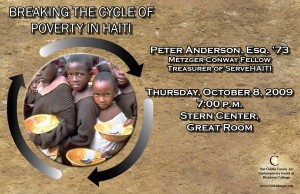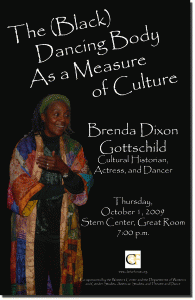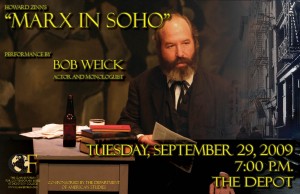Peter Anderson, Esq. ’73
Metzger-Conway Fellow,
Treasurer of ServeHAITI
Breaking the Cycle of Poverty in Haiti
(Part of The Clarke Forum’s series on “Leadership in an Age of Uncertainty”)
Thursday, October 8, 2009
Stern Center, Great Room, 7:00 p.m.
The discussion will focus on the cultural and economic challenges to providing healthcare to poor Haitians in the rural and mountainous region of Grand Bois. In particular, the talk will address the subtle causes of infant mortality and specific issues regarding women’s health.
Topical Background
Haiti is the poorest country in the Western Hemisphere. It was the first black republic to declare its independence in 1804 and since then it has been plagued by political violence for most of its history. After the forced resignation and exile of President Jean-Bertrand Aristide in February 2004, a provisional government was established under the United Nations Stabilization Mission in Haiti (MINUSTAH). This provisional government was charged with organizing new elections and in May 2006 Haiti inaugurated its first democratically elected president and parliament.
According to the Haiti Micah Project, a nonprofit Christian organization committed to addressing the needs of impoverished and uneducated street children in Haiti, the following bullet points provide a snapshot of Haiti’s condition:
• The Read more

















